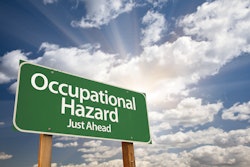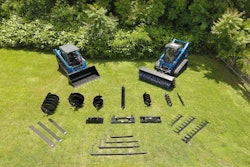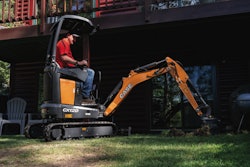
A lot of time, attention and research goes into choosing the right candidates for your landscaping company, which makes it even more important to know you are conducting thorough and thought out interviews.
When bringing in new employees, you want to make sure your hiring process works for you and is sustainable long term for your company, and there are many methods, tools and assessments you can utilize to determine whether or not a person is a good fit for your company.
Take a look at what hiring experts say are the best methods for conducting effective interviews, as well as a few red flags to avoid along the way.
Common hiring mistakes
Erin Barr, human resources director at Munie Greencare Professionals, knows firsthand the employment issues facing the green industry today, and with the added elements of COVID-19 and unemployment pay, Barr says that problem has been exacerbated.
Many green industry companies find themselves in that same boat, and with that in mind, Barr says there may be times when employers find themselves bringing people onto the team much faster than they typically would.
This could end up being a great move for your company if the individual turns out to be a good fit, or it’s possible that you could be bringing someone on board that will be gone in a week.
“It is really tough when you are in the peak of the season and need to get those positions filled, however, you still need to take your time,” says Barr. “If you know that in a normal circumstance you would not hire a candidate because they don’t have the qualifications that you’re looking for, you should really resist that urge to hire them just to have someone.”
Since the start of the pandemic, Barr says they have seen an influx of resumes across all nine of their locations, but they find fewer candidates are actually calling them back.
Barr believes some of that might be caused by the supplemental unemployment pay that’s being offered, as well as the growing concerns over the spread of the virus and being able to work safely.
Barr says it’s important to remember that there is always room for improvement in your hiring process, and it needs to be something that grows and changes with your company.
“With our hiring process, we’re constantly looking making adjustments, depending on what’s going on with the business,” says Barr. “So, don’t be afraid to abandon something that’s not working, embrace and grow something that is and make changes where you need to.”
Conducting the interview
When performing an interview on a potential hire, Barr says it’s important to remember that the candidate needs to do the talking, not you.
Barr says many hiring managers make the mistake of leading the candidate’s answer by asking specific questions that already have the desired answer spelled out in the question.
The key, she says, is to ask open-ended questions so the candidates will answer honestly instead of giving the answer they think you want to hear. Along with this, Barr says to make sure the candidates do the most talking, as you’re trying to get to know them.
Once you’ve heard all they have to say, Barr says you can then tell them about the company and more details about the job they’d be doing. By saving this information until the end, Barr says you get a more accurate depiction of what applicants can do and what they want out of a job.
When going through your interview questions, Barr recommends keeping the tone conversational to keep the candidate at ease, and always remember that you are in charge of leading the interview, so set those expectations up front.
Barr says there really is no perfect set of interview questions, as each company will have different values, expectations and needs, but regardless of what you ask, be sure to ask the same questions to all candidates to ensure you’re judging based on the same metrics.
Some of Barr’s most frequently asked questions are “How would your last manager describe you?” and “What in a job or a company is important to you?”
Barr says these two specific questions give her insight into how the candidate thinks others would describe or judge him/her, as well as show what really matters to him/her in a workplace environment.
“I find that candidates really respond positively to that question because it shows that you care about their opinions and care about them as a person,” says Barr.
Barr says she also asks candidates “What has been your favorite and least favorite job that you’ve ever had?”
When candidates start answering and expounding on this question, in particular, Barr says you’re really able to get to know candidates better.
In the end, Barr says she is a huge proponent of hiring for attitude and training for skill if you’re trying to fill general positions. When specialized skills or certifications aren’t required for the job, Barr says teaching someone how to perform general labor tasks will go much more smoothly if the person has a good attitude and is willing to work and learn.
Check back tomorrow for part two, where we’ll explore what questions you should never ask candidates, as well as how candidates can prepare for an interview.












